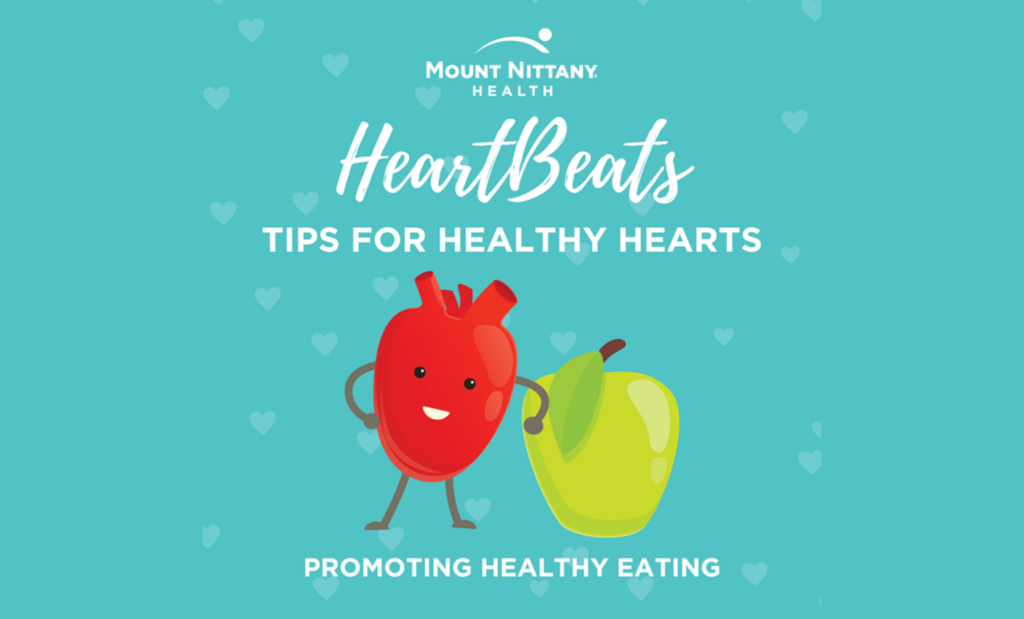Cardiology Care
Discover more about Cardiology Care, including locations and providers, at Mount Nittany Health
A healthy diet that includes plenty of fruits, vegetables, whole grains, lean proteins, and healthy fats can help reduce the risk of heart disease. Try the tips below to help you make healthier food choices.
Here are 7 healthy heart tips focused on promoting healthy eating:
- Incorporate plenty of fruits and vegetables into your diet: Fruits and vegetables are rich in nutrients and fiber that are beneficial for heart health. Aim for at least 5 servings of fruits and vegetables per day.
- Choose whole grains: Whole grains contain fiber, vitamins, and minerals that can help lower cholesterol and reduce the risk of heart disease. Look for products that list whole grains as the first ingredient.
- Limit saturated and trans fats: Saturated and trans fats can increase cholesterol levels and increase the risk of heart disease. Choose lean meats, low-fat dairy products, and healthy oils like olive oil.
- Increase omega-3 fatty acids: Omega-3 fatty acids can help lower triglycerides and reduce the risk of heart disease. Eat fatty fish like salmon, tuna, or mackerel twice a week or consider taking an omega-3 supplement.
- Reduce sodium intake: High sodium intake can increase blood pressure and increase the risk of heart disease. Choose low-sodium options or reduce added salt when cooking.
- Avoid sugary drinks: Sugary drinks can contribute to obesity and increase the risk of heart disease. Choose water, tea, or unsweetened beverages instead.
- Choose low-fat dairy products: Low-fat dairy products can provide calcium and other nutrients without the added saturated fat found in full-fat dairy products.


